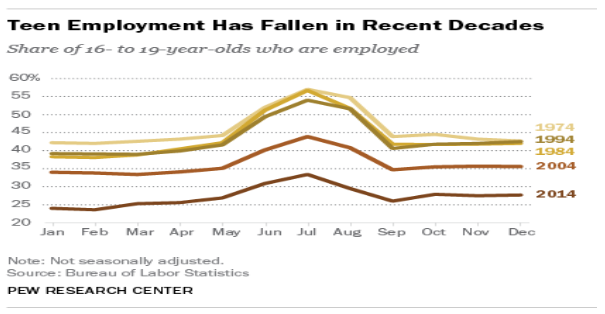6.8: Teenagers and Working
Many adolescents work either summer jobs, or during the school year. Holding a job may offer teenagers extra funds, the opportunity to learn new skills, ideas about future careers, and perhaps the true value of money. However, there are numerous concerns about teenagers working, especially during the school year. A long-standing concern is that that it “engenders precocious maturity of more adult-like roles and problem behaviors” (Staff, VanEseltine, Woolnough, Silver, & Burrington, 2011, p. 150). Several studies have found that working more than 20 hours per week can lead to declines in grades, a general disengagement from school (Staff, Schulenberg, & Bachman, 2010; Lee & Staff, 2007; Marsh & Kleitman, 2005), an increase in substance abuse (Longest & Shanahan, 2007), engaging in earlier sexual behavior, and pregnancy (Staff et al., 2011).

However, like many employee groups teens have seen a drop in the number of jobs. The summer jobs of previous generations have been on a steady decline, according to the United States Department of Labor, Bureau of Labor Statistics (2016). See Figure 6.15 for recent trends.


